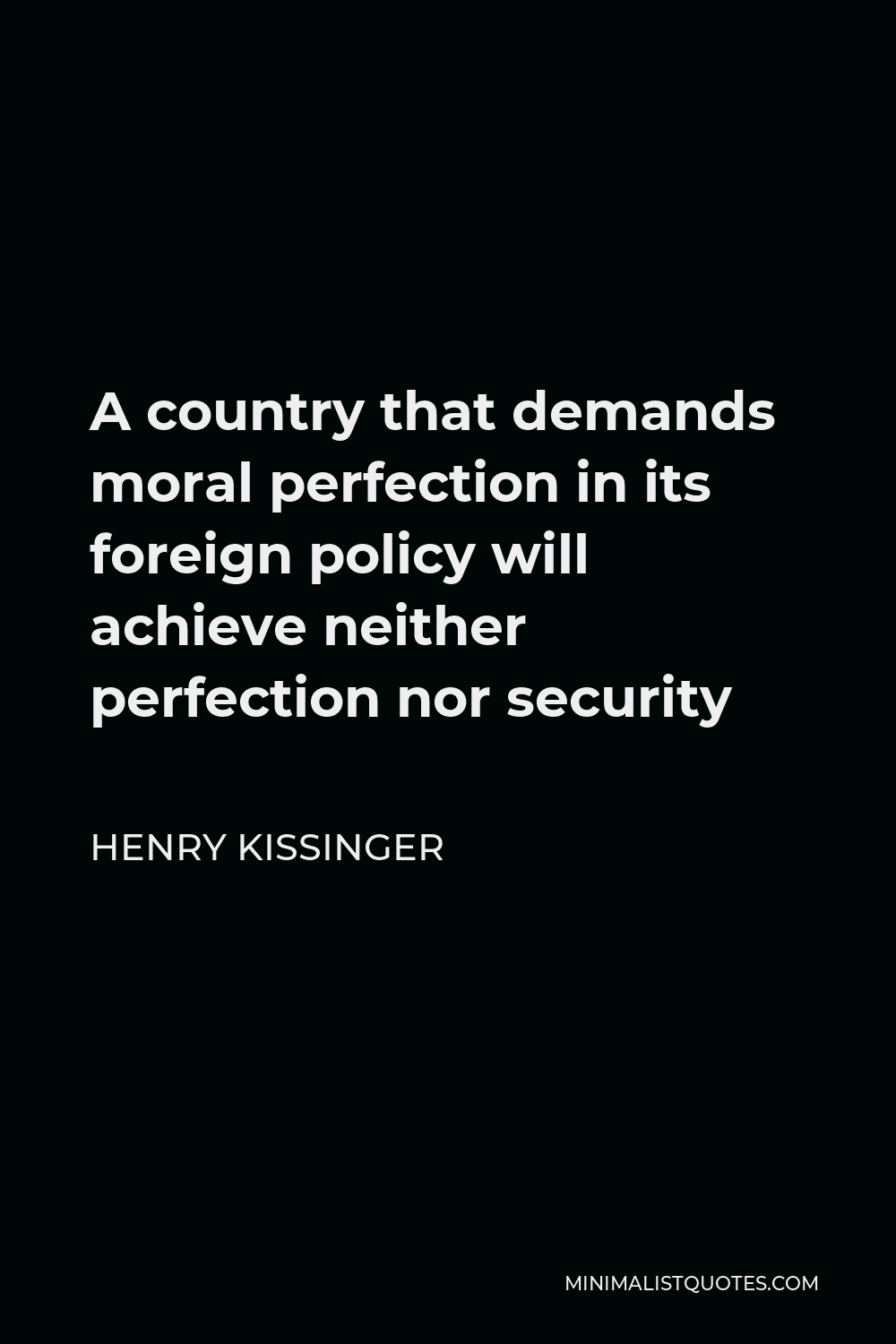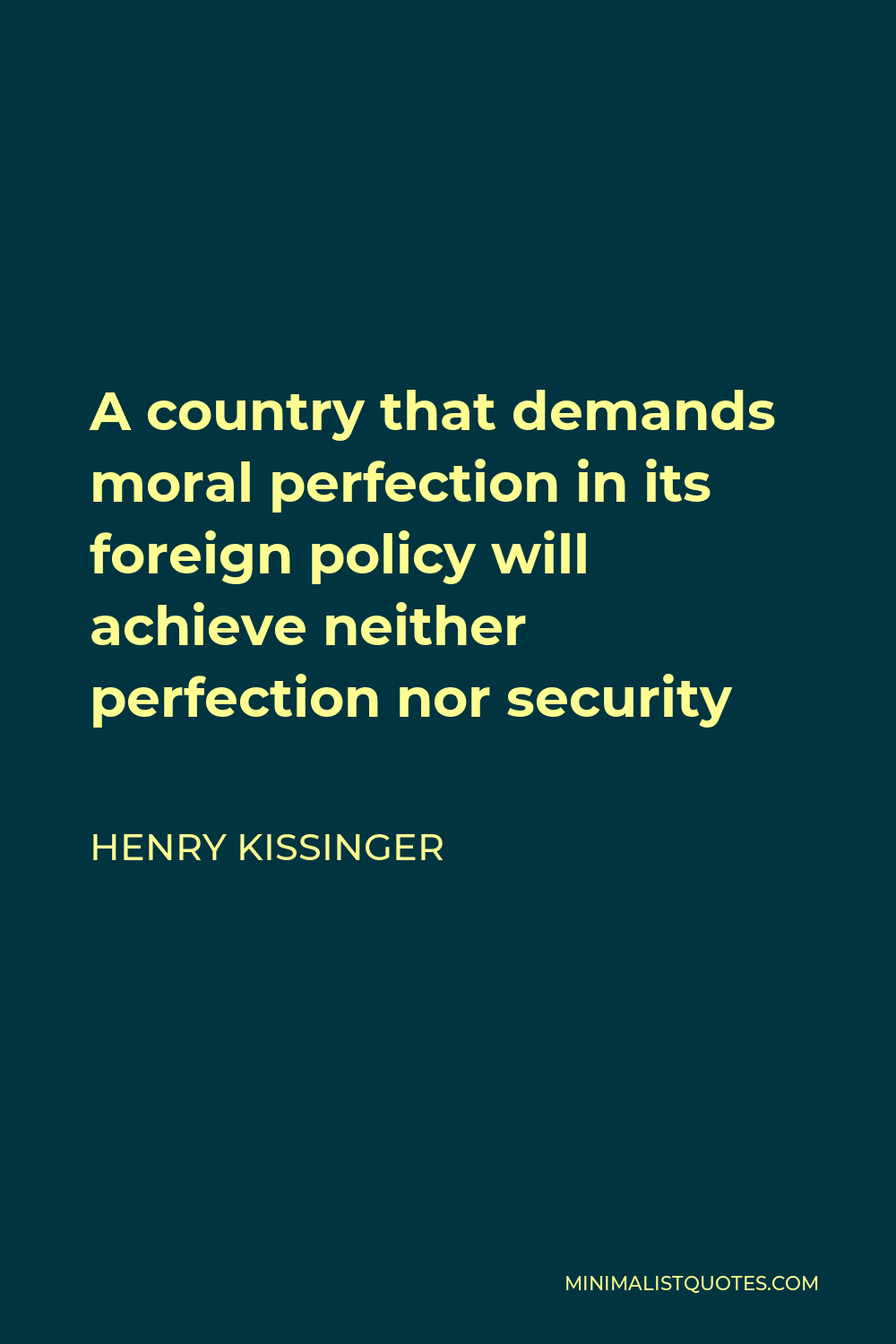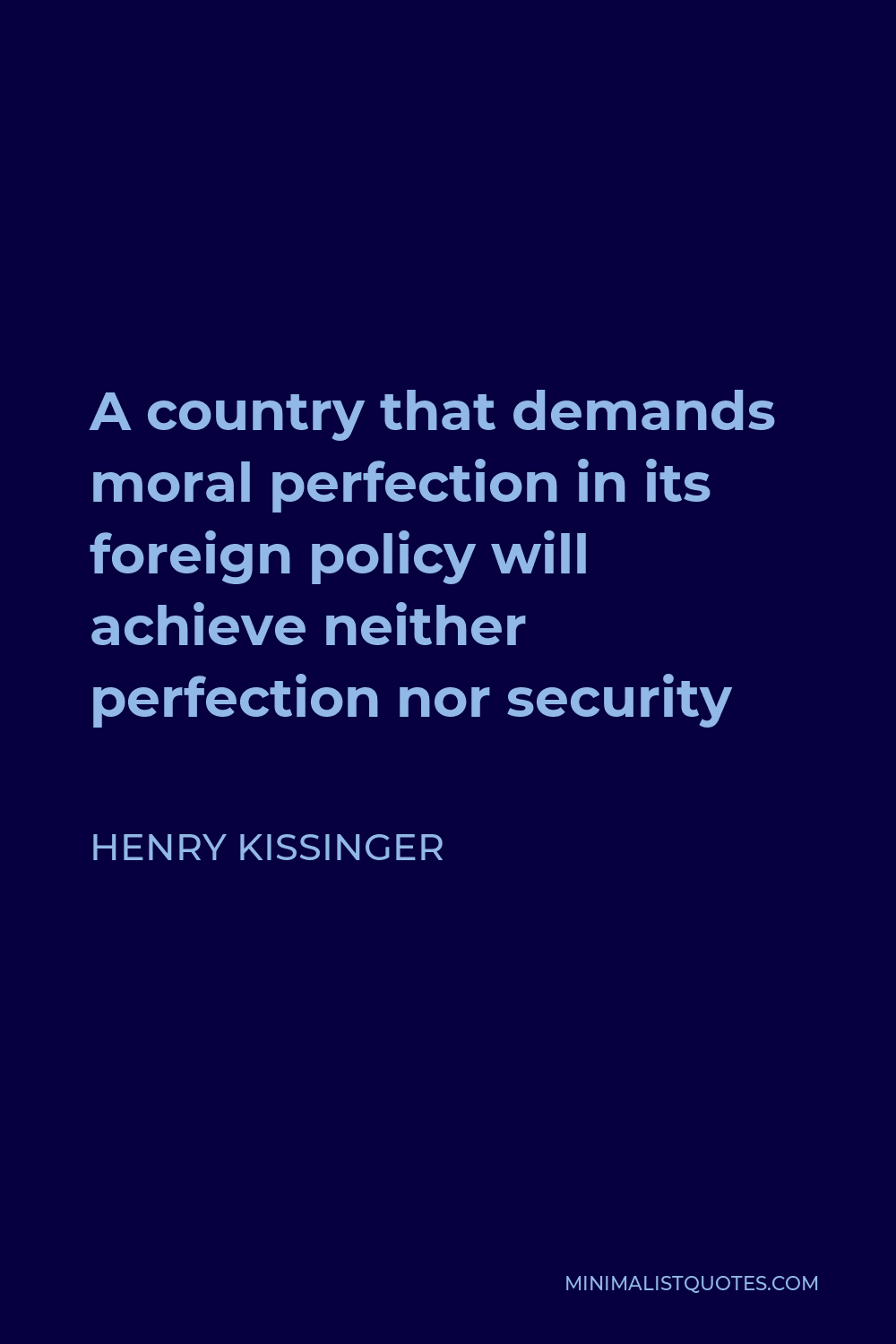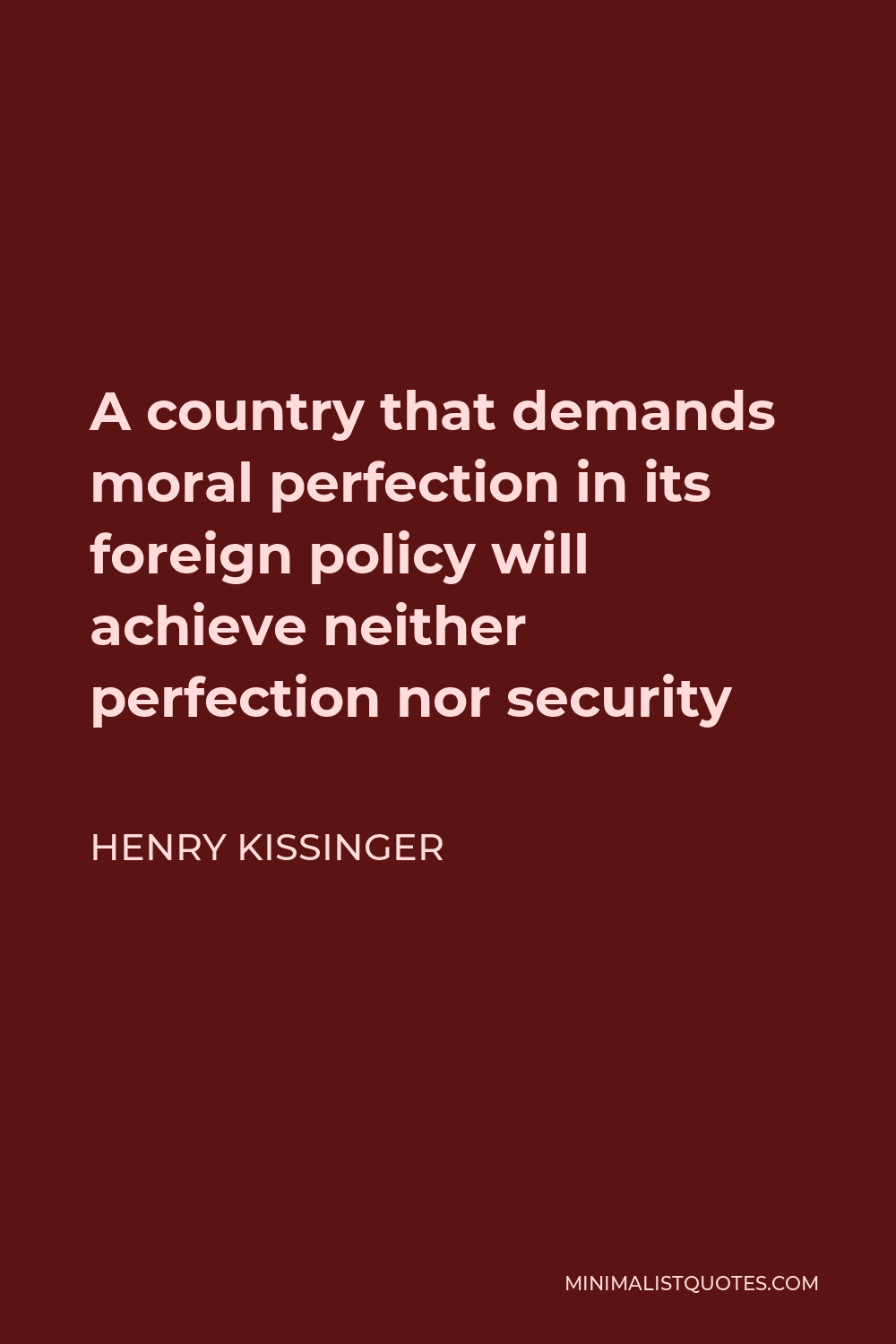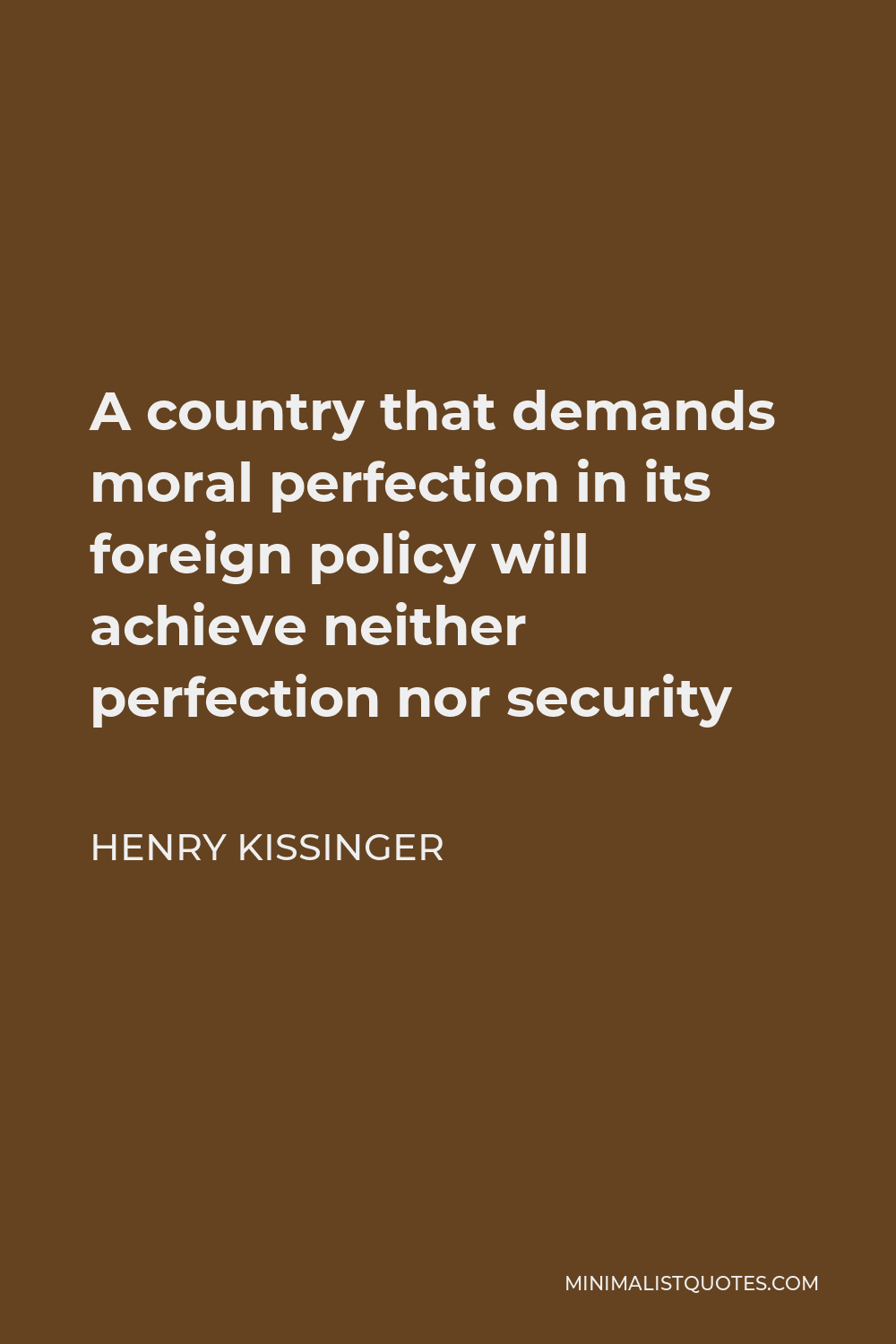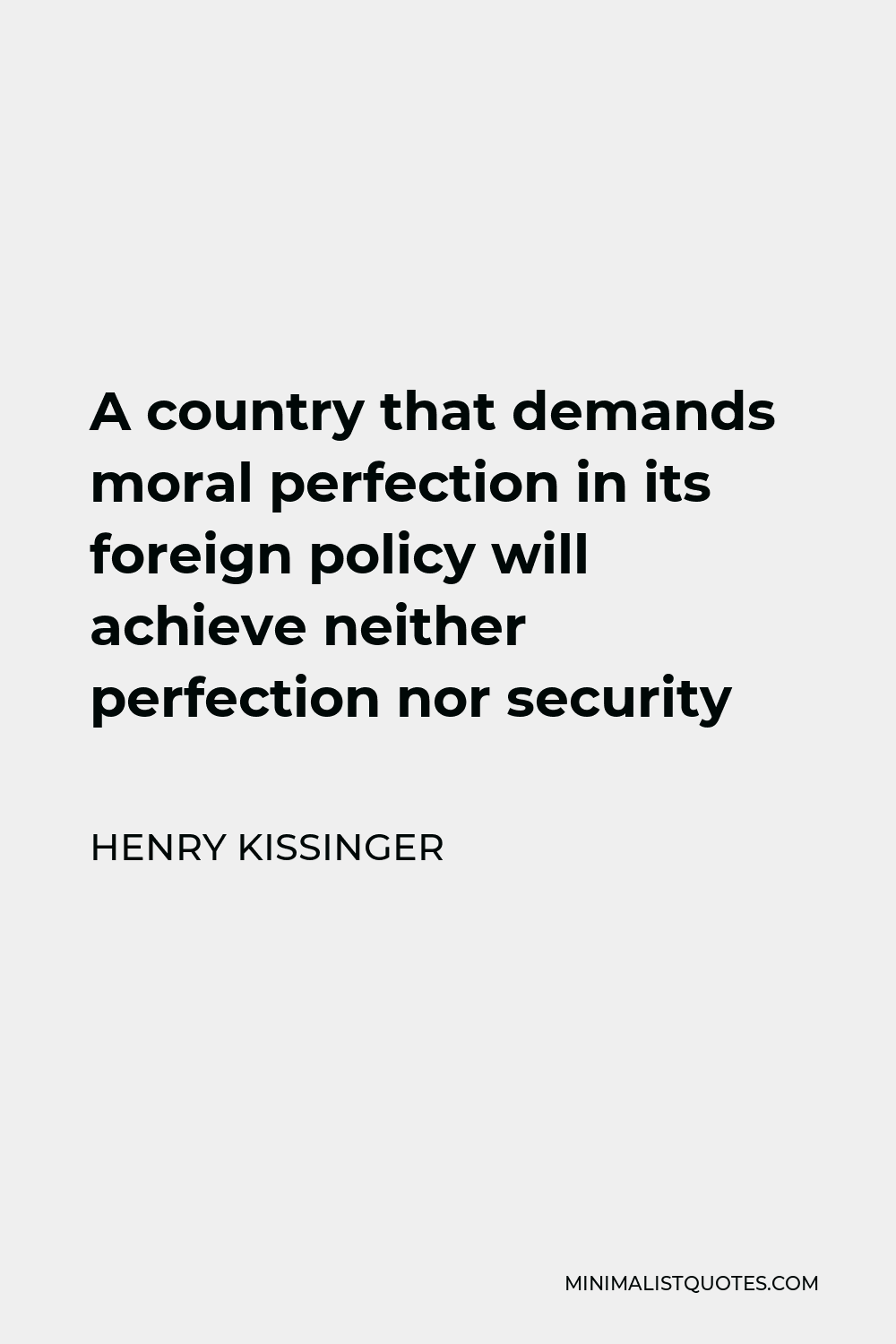It is one of history’s ironies that Communism, advertised as a classless society, tended to breed a privileged class of feudal proportions.
HENRY KISSINGERA country that demands moral perfection in its foreign policy will achieve neither perfection nor security
More Henry Kissinger Quotes
-







-





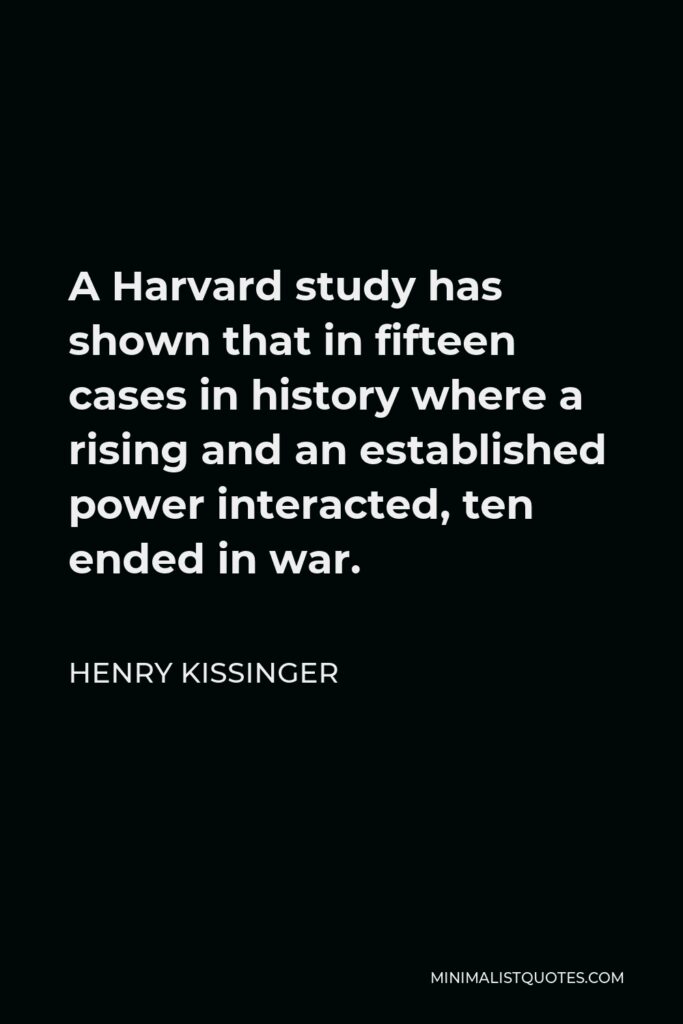

A Harvard study has shown that in fifteen cases in history where a rising and an established power interacted, ten ended in war.
HENRY KISSINGER -





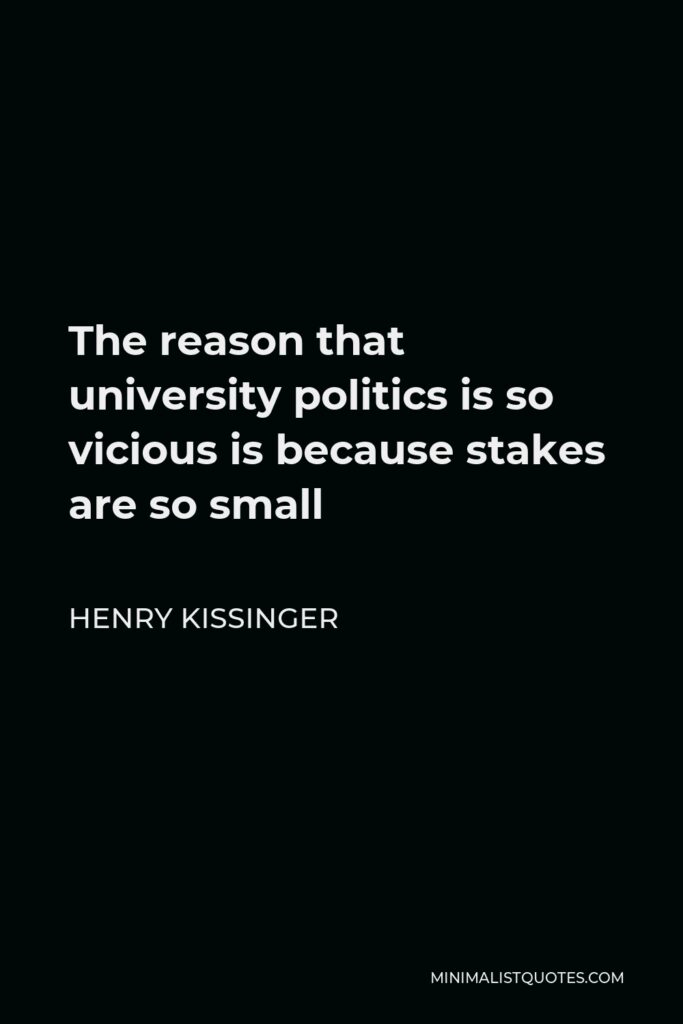

The reason that university politics is so vicious is because stakes are so small
HENRY KISSINGER -





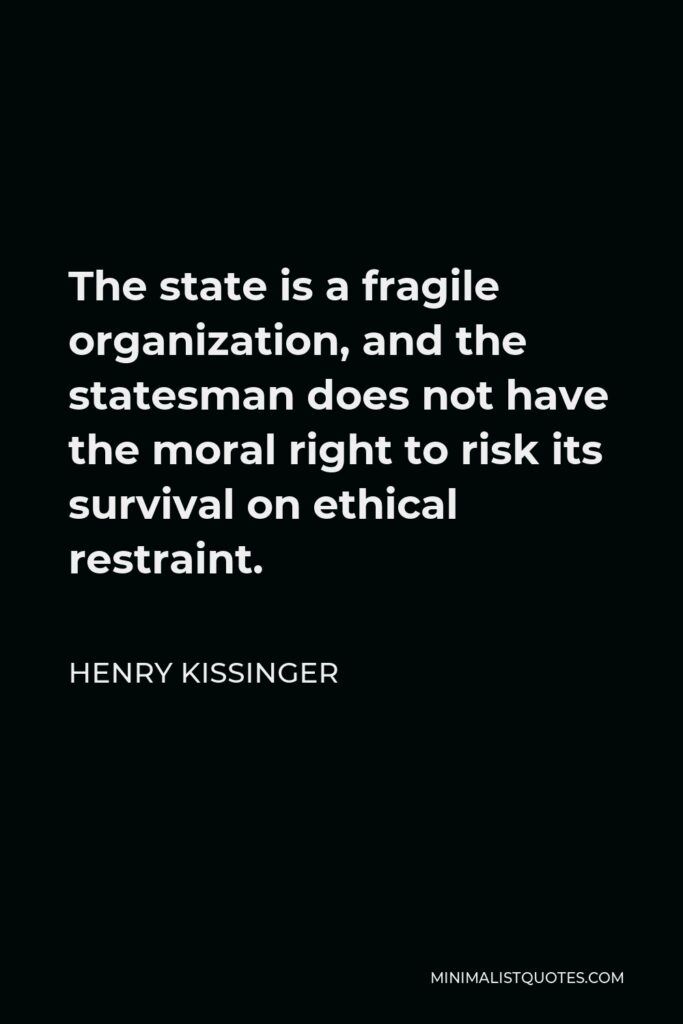

The state is a fragile organization, and the statesman does not have the moral right to risk its survival on ethical restraint.
HENRY KISSINGER -





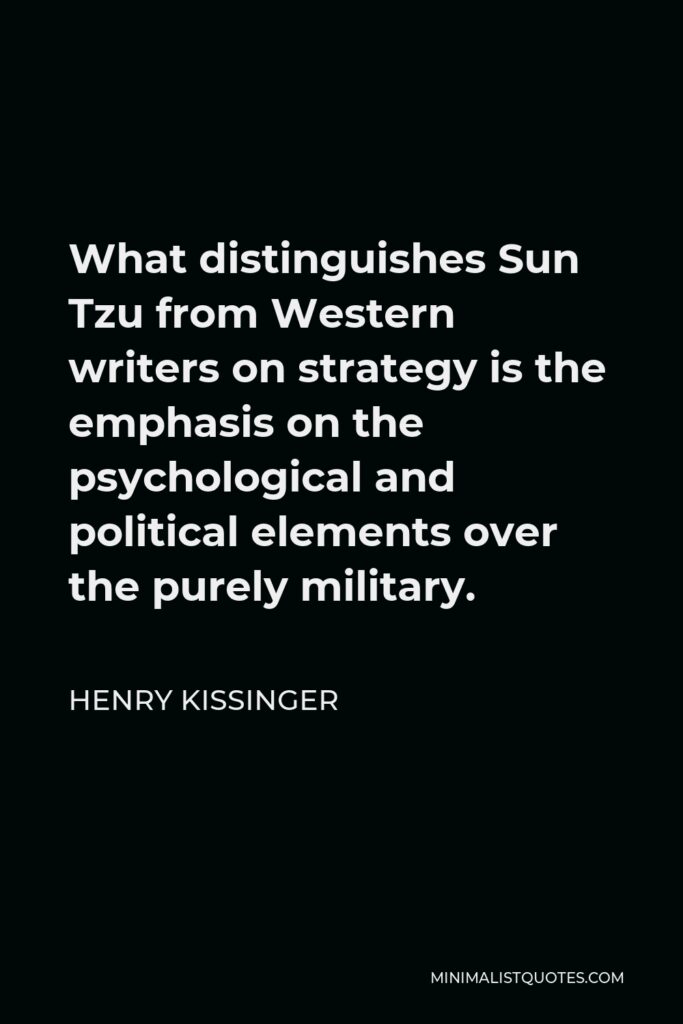

What distinguishes Sun Tzu from Western writers on strategy is the emphasis on the psychological and political elements over the purely military.
HENRY KISSINGER -





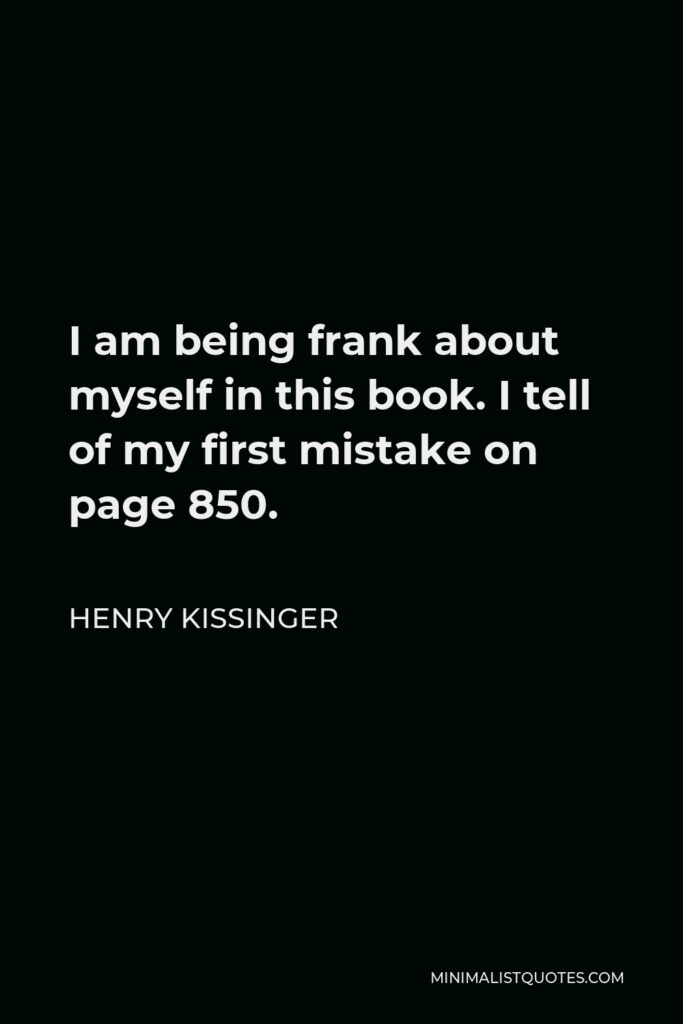

I am being frank about myself in this book. I tell of my first mistake on page 850.
HENRY KISSINGER -





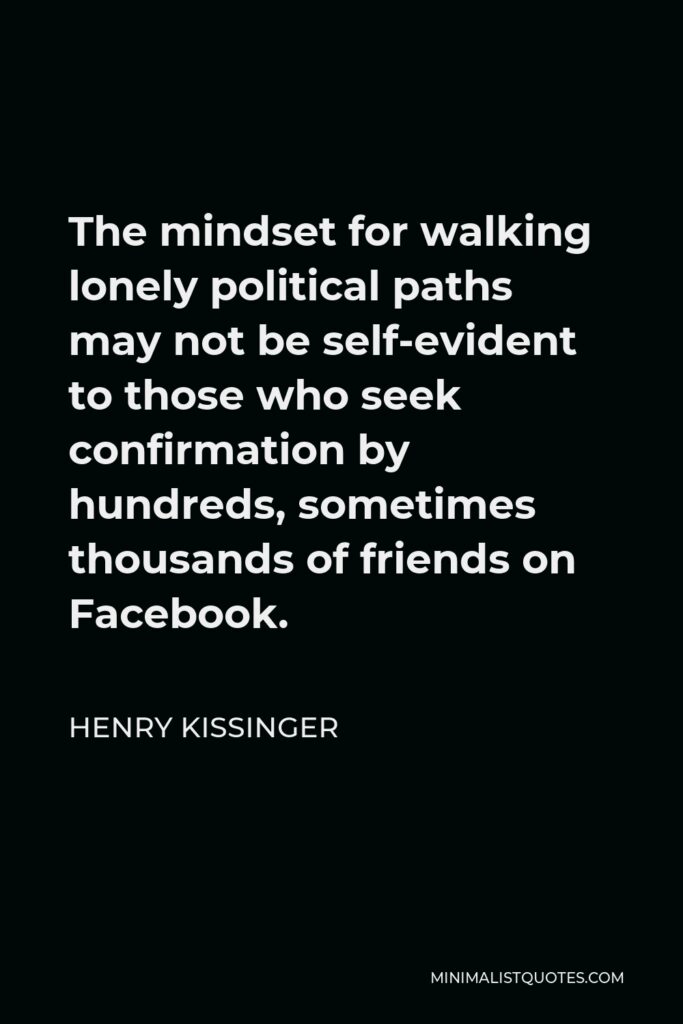

The mindset for walking lonely political paths may not be self-evident to those who seek confirmation by hundreds, sometimes thousands of friends on Facebook.
HENRY KISSINGER -





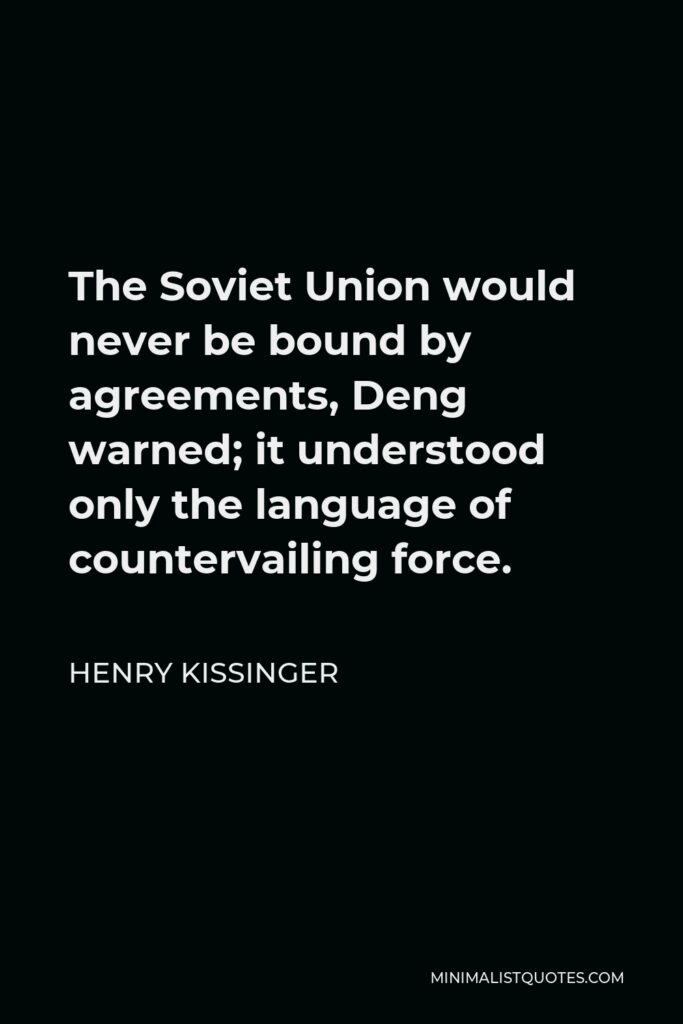

The Soviet Union would never be bound by agreements, Deng warned; it understood only the language of countervailing force.
HENRY KISSINGER -





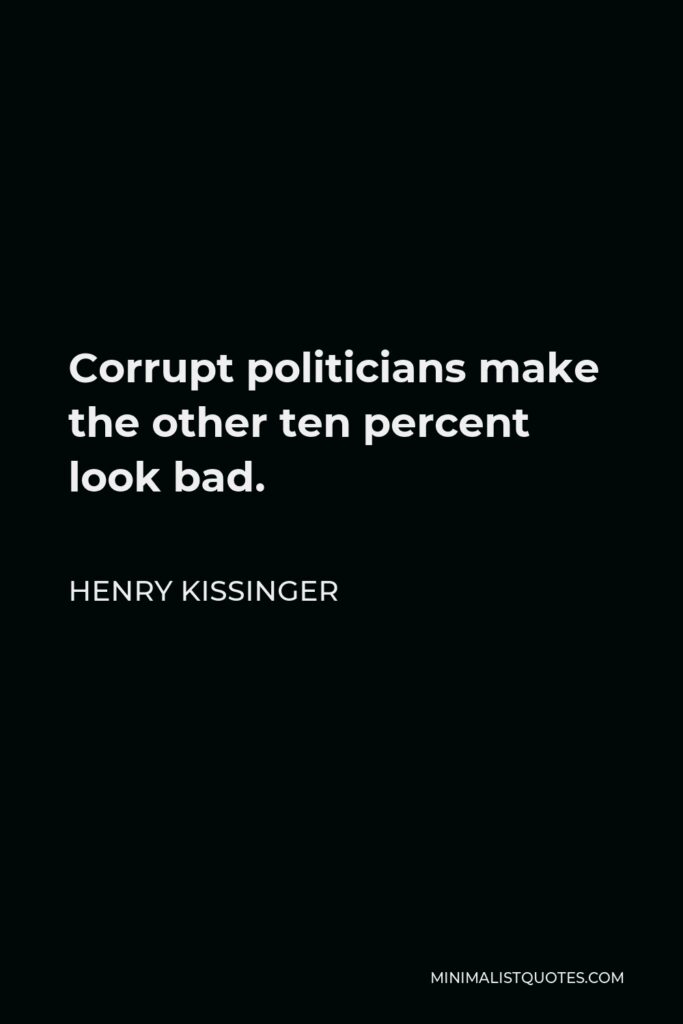

Corrupt politicians make the other ten percent look bad.
HENRY KISSINGER -





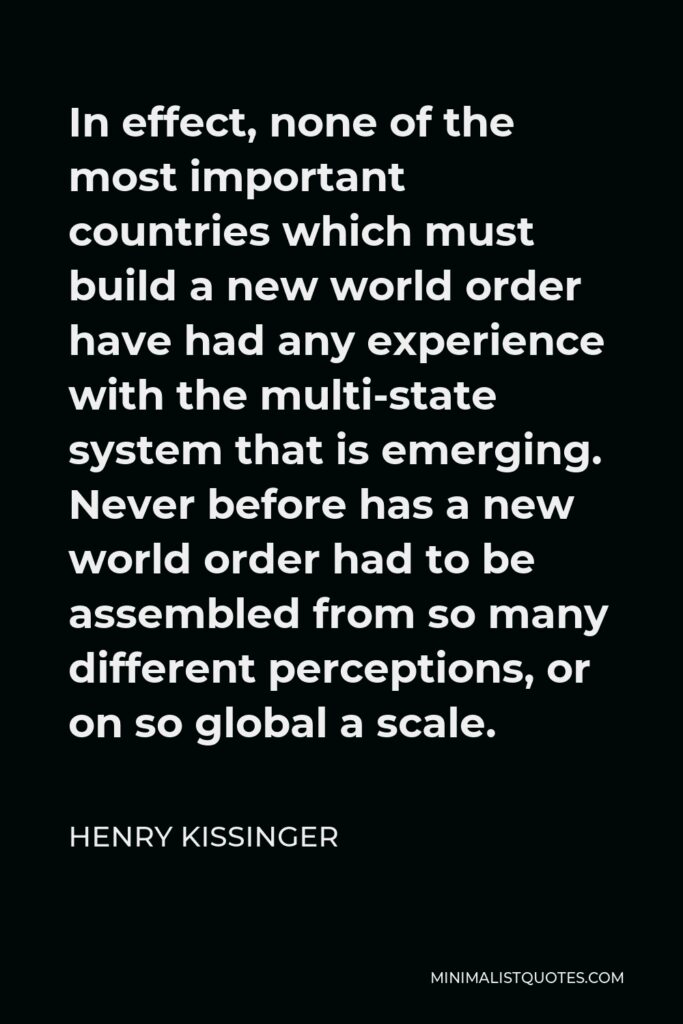

In effect, none of the most important countries which must build a new world order have had any experience with the multi-state system that is emerging. Never before has a new world order had to be assembled from so many different perceptions, or on so global a scale.
HENRY KISSINGER -





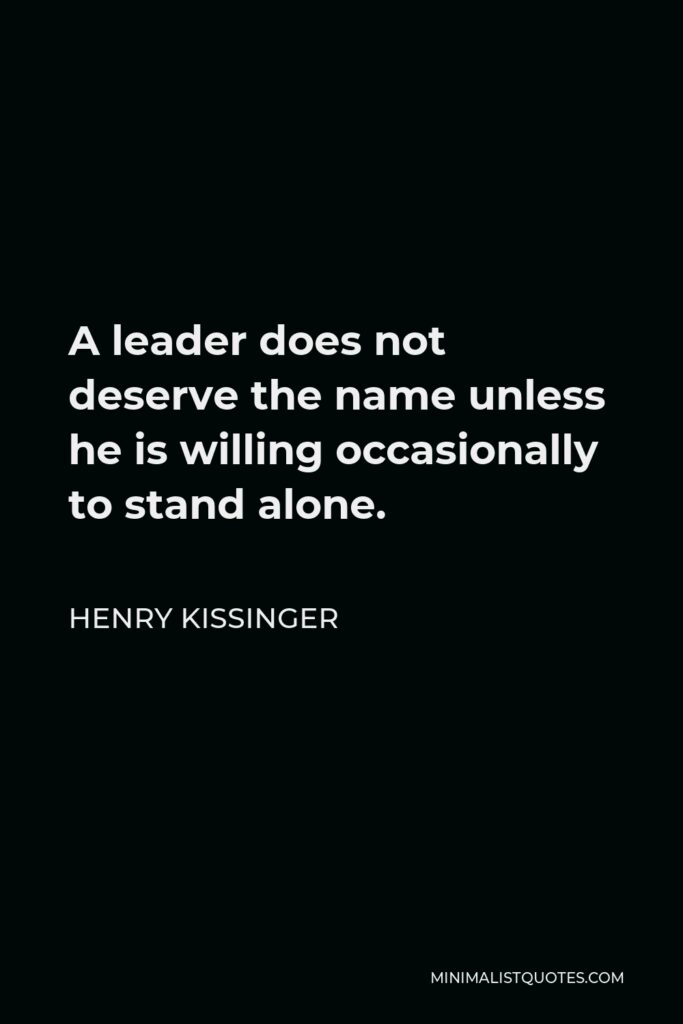

A leader does not deserve the name unless he is willing occasionally to stand alone.
HENRY KISSINGER -





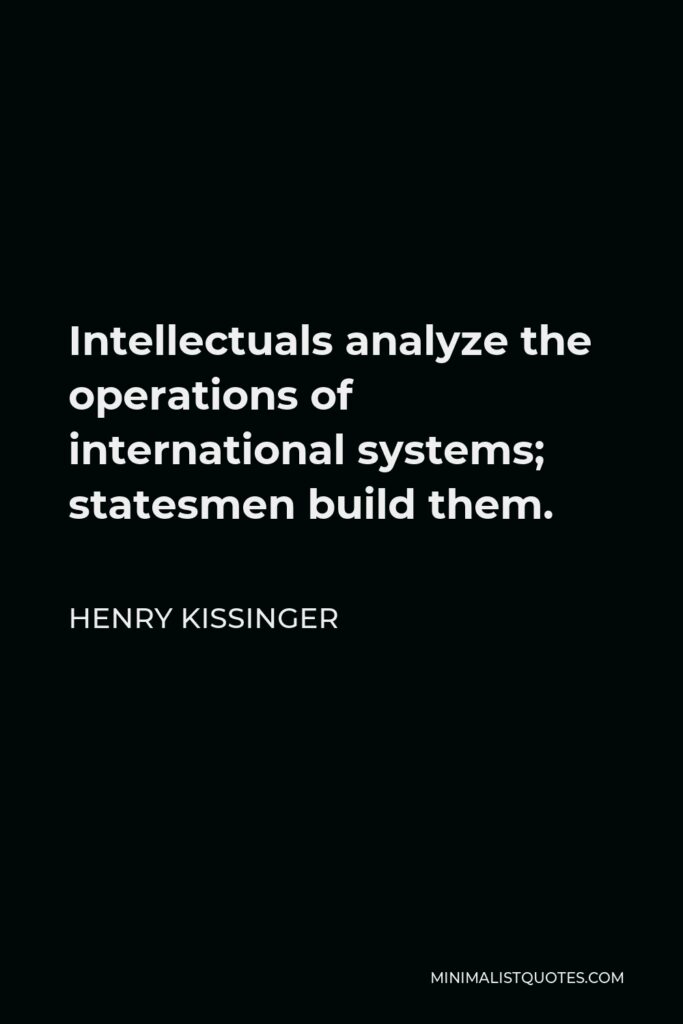

Intellectuals analyze the operations of international systems; statesmen build them.
HENRY KISSINGER -





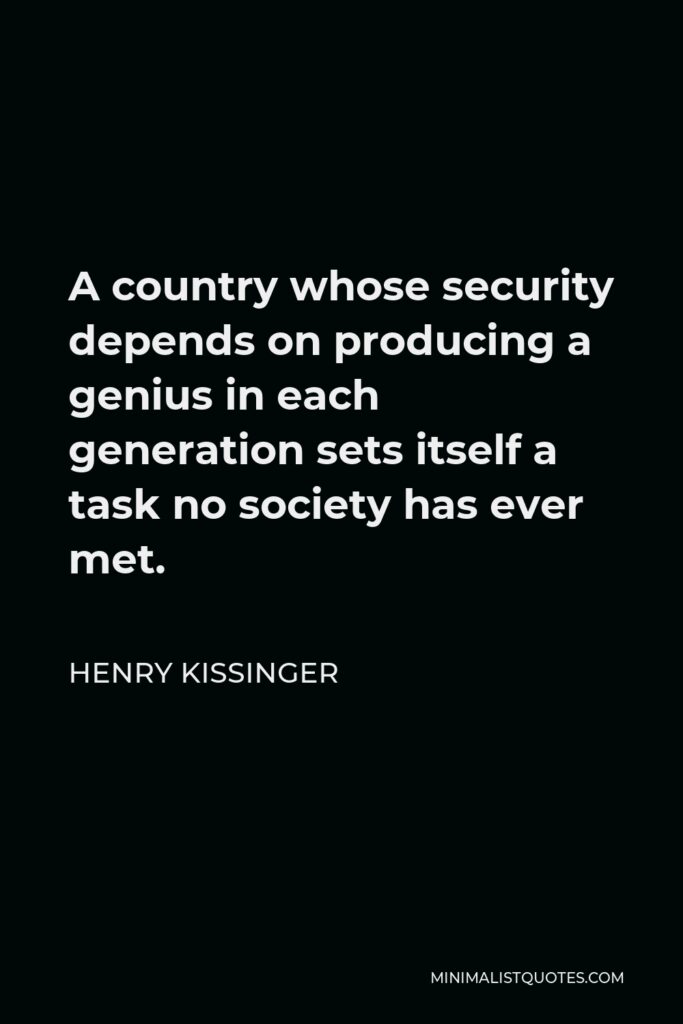

A country whose security depends on producing a genius in each generation sets itself a task no society has ever met.
HENRY KISSINGER -





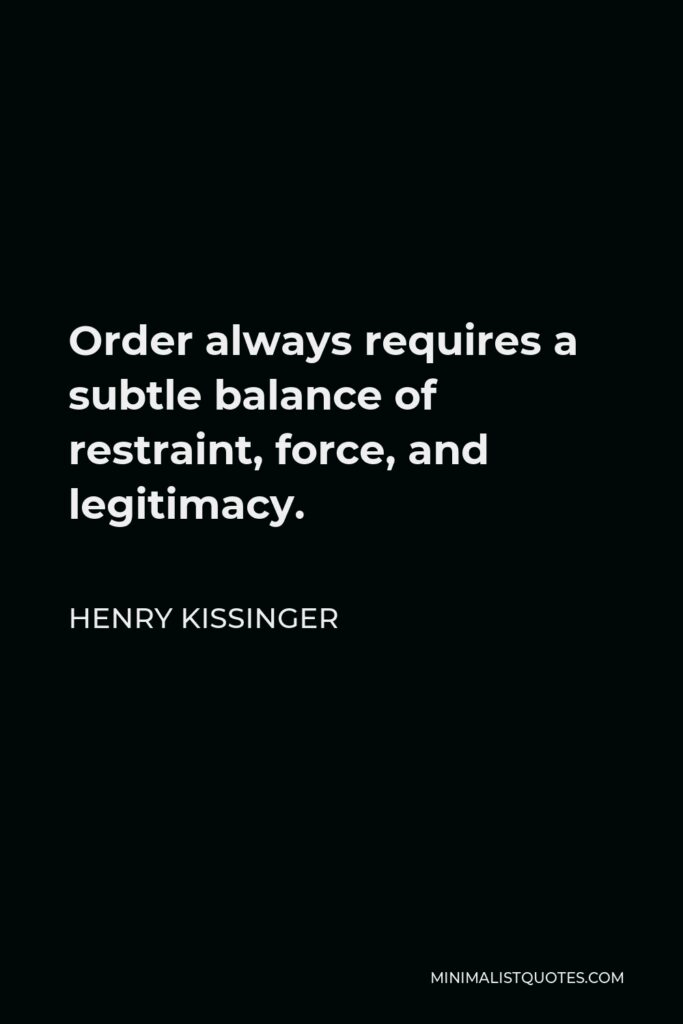

Order always requires a subtle balance of restraint, force, and legitimacy.
HENRY KISSINGER -





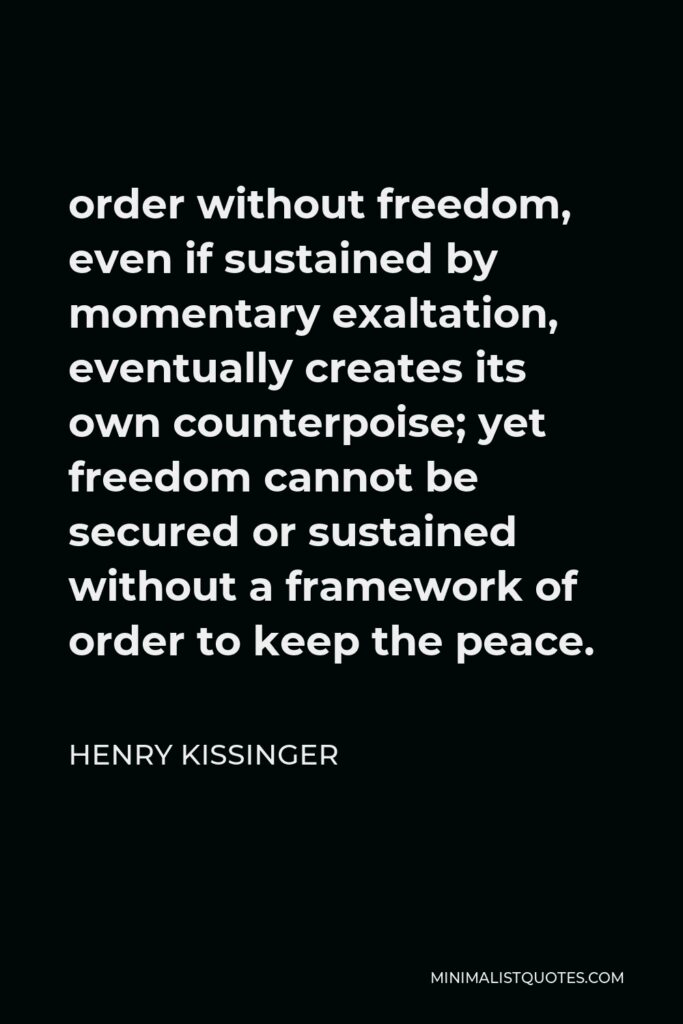

order without freedom, even if sustained by momentary exaltation, eventually creates its own counterpoise; yet freedom cannot be secured or sustained without a framework of order to keep the peace.
HENRY KISSINGER -





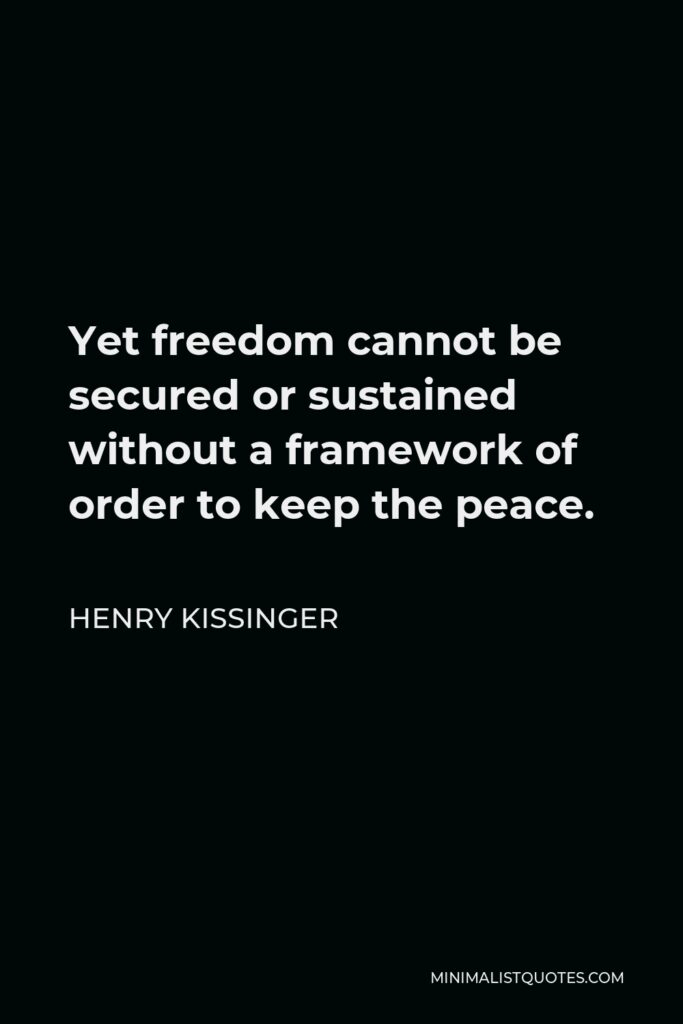

Yet freedom cannot be secured or sustained without a framework of order to keep the peace.
HENRY KISSINGER
